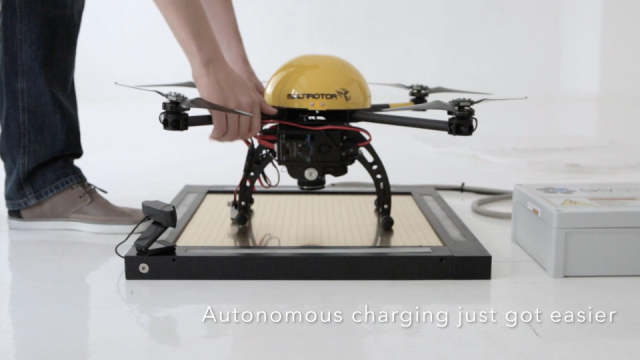Surveillance drones are headed indoors.
Two technology companies say they are partnering to develop a fully automated drone security service designed to work inside. From takeoff to landing, the drone system, a joint venture between US and Germany-based Skysense and Avansig, a Spanish technology company, will work automatically to detect “potential security threats or breaches,” Skysense wrote.
The drone security guards will apparently follow a pre-programmed route, livestreaming everything they see and flagging anything perceived as out of order. When the drones’ batteries are low, they’ll return to their charging pad and charge up on their own. The system is intended to be fully automated, requiring as little input from people as possible.
Imagine a roving CCTV camera with no blind spots. It would’ve really complicated the heist plan in Ocean’s 8. (But I’m sure Rihanna would’ve found a way to pull through.)
Generally speaking, automated security is cheaper than employing human security guards — robots and drones can work long hours and never get tired, even during graveyard shifts.
But automation and self-recharging enables persistent surveillance — think cameras that never turn off. So rather than advanced technology being used in certain cases, it just becomes the ongoing norm. Because of this, there’s always the issue of mission creep, where surveillance technologies are used in different settings than what they were originally intended.
Consider autonomous security robots. Knightscope’s series of roving security eggs began as a cheaper way to secure empty lots and buildings. But they were famously used to disrupt homeless encampments, and will soon enter US schools as an alternative to trained resource officers.
Automating security means less room for human error, ideally, but also less human judgement, something that’s useful in school settings and around vulnerable people.
Returning to automated drones, persistent real-time surveillance isn’t something to take lightly. Should they be deployed at protests, potentially identifying the people who attend? Persistent surveillance is becoming cheaper and simpler, but the security and privacy questions they pose are becoming more costly and complex.
[Fox]
